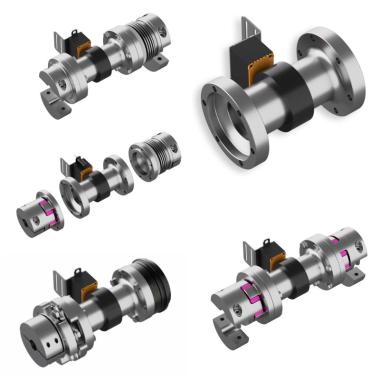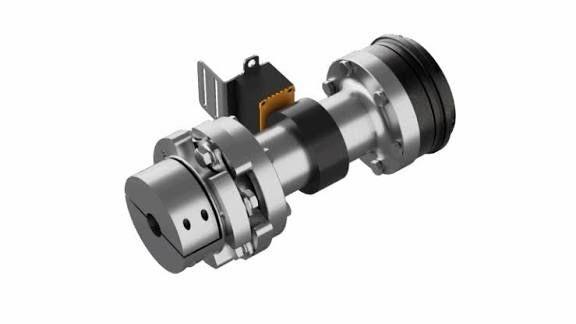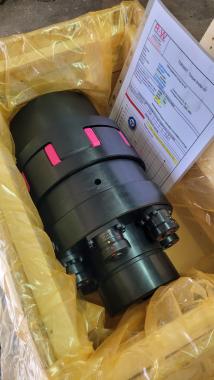Artificial intelligence, an under-exploited competitiveness lever in industry

Since the invention of the term Artificial Intelligence (AI) in 1956, all the theories and techniques used to create machines capable of simulating human intelligence have made spectacular progress. Now an essential lever for competitiveness, AI today constitutes a major challenge for French companies, particularly industrial ones. Decryption.
As part of France 2030, and as international technological competition continues to grow, the French government has launched the Artificial Intelligence Acceleration Strategy aimed at positioning France as a leader on the world stage of AI. A historic plan of 740 million euros has been released with this in mind, in particular for:
- Strengthen the empowerment and resilience of the productive system, and modernize it;
- Develop a European offer on all links in the technological chain, and thus preserve the importance of European players in the value chains of services associated with AI;
- Position French industries in new markets through the development of AI-based products;
- Accelerate the digital and ecological transition of companies thanks to AI and ensure the consistency of the industrial fabric in a zero-emission economy by 2050.
Still progress to be made for the French industrial sector in terms of AI
At the heart of factory 4.0, AI interferes in the automation of the production chain, quality control, logistics or even predictive maintenance (anticipating breakdowns, defect detection). Above all based on the management and rapid processing of data, AI opens up the field of possibilities thanks to the acquisition of data allowing complex questions to be resolved in a shortened time. Research-based technologies such as machine learning and deep learning have come out of the lab to perform tasks that previously seemed inaccessible to machines.
In France, much progress can still be made on the industrial apparatus in terms of AI. An observation shared last year by Antoine Couret, President of the Hub France Artificial Intelligence: "France and Europe are advanced in terms of research, but we observe a relatively high rate of loss with regard to the transition to the operational. Trust and awareness of the potential that AI represents for industry must grow. »
Although manufacturers (all sectors combined) invest on average between 0.4% and 1% of their turnover in projects involving Artificial Intelligence, the industry remains cautious. According to an EY-Parthenon study, conducted in 2021 and commissioned by the General Secretariat for Investment, only 10 to 15% of companies have succeeded in industrializing AI-based solutions in their business, 30 to 40% limiting themselves to experiments on limited perimeters or processes.
Time saving, decision support, cost reduction… the benefits of AI are numerous
However, artificial intelligence represents many benefits for industrial companies. Data processing and description, prediction and prescription capabilities offer manufacturers a tremendous opportunity to optimize their productivity. As such, the digital twin – a virtual replica of the operation of a product, process or service – is a valuable design and production aid tool.
By being able to identify repetitive tasks with low added value that can be automated or prevent a failure before it occurs, artificial intelligence is also synonymous with saving time and reducing costs. It also guarantees quality by controlling defects that may occur on a production line, in particular from sensors or visual or thermal cameras.
Capable of analyzing a large number of files at regular intervals to reveal possible risks, artificial intelligence is also constantly improving cybersecurity processes. A major challenge when we know that 54% of French companies were victims of at least one cyberattack in 2021. Its integration into on-board solutions thus appears to be a solution making it possible to respond to several major economic and societal challenges – environmental challenge ( particularly in terms of energy savings), data confidentiality and competitiveness.
AI for more efficient, flexible and reliable production
If artificial intelligence has historically been developed on cloud servers to meet the computing power needs that only these infrastructures were capable of providing, it is now entering a new phase consisting of being "embedded" directly within everyday objects. The European Commission estimates that 80% of data flows are currently processed in the centralized cloud, compared to around 20% locally, but this ratio could be reversed within 5 years.
Finally, far from replacing human action – it needs humans to be configured – AI, via data analysis, embodies an important vector for decision support. It makes it possible to identify the areas of expertise of employees to facilitate and accelerate the sharing of knowledge between employees of the same company. Often based on a learning mechanism where the accumulation of data allows the continuous improvement of devices, AI will therefore influence factories and industrial production, but also all business activity. Its use in the industrial sector now opens up promising prospects: more efficient, more flexible and more reliable production, thus making companies more competitive.
Our other news
See allJoin the largest community of industrial suppliers
- Helping you with your ongoing technology watch
- Provide you with detailed supplier statistics
- Give you international visibility
Discover the largest catalogue of industrial products on the market
- To offer you the best catalogue of industrial products on the market
- To guarantee you a 100% secure platform
- Enable you to have live remote exchanges


 Français
Français 







